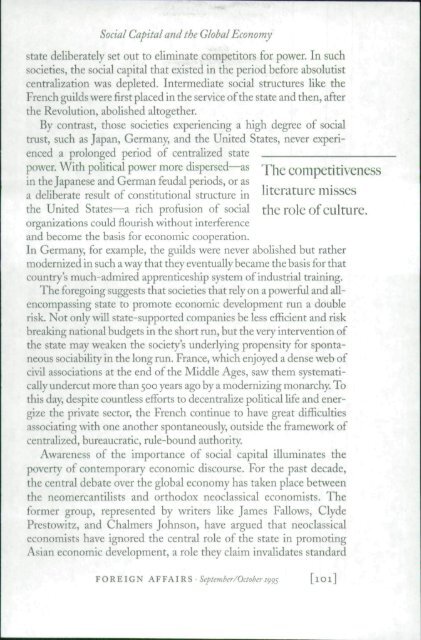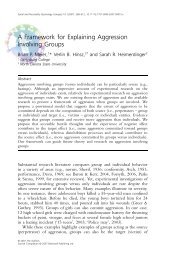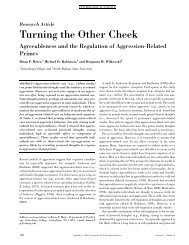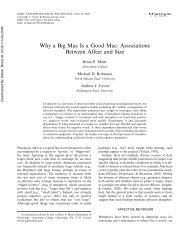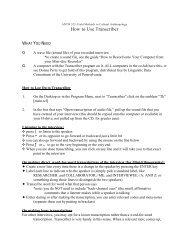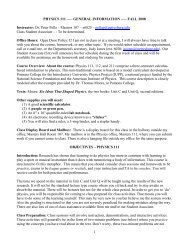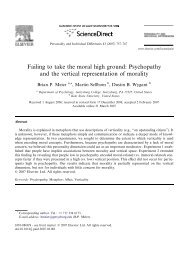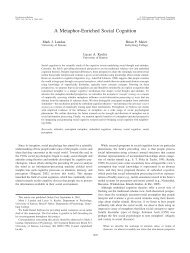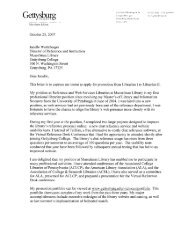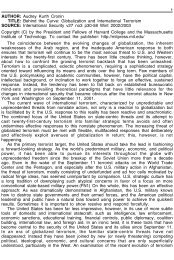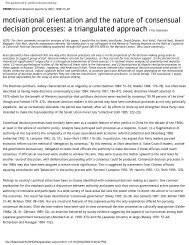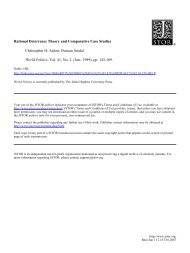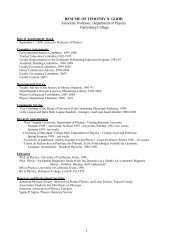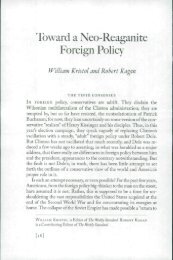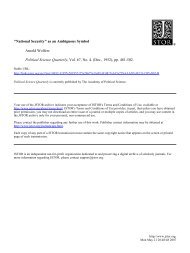Francis Fukuyama. 1995 "Social Capital and the Global Economy."
Francis Fukuyama. 1995 "Social Capital and the Global Economy."
Francis Fukuyama. 1995 "Social Capital and the Global Economy."
Create successful ePaper yourself
Turn your PDF publications into a flip-book with our unique Google optimized e-Paper software.
<strong>Social</strong> <strong>Capital</strong> <strong>and</strong> tbe <strong>Global</strong> <strong>Economy</strong><br />
state deliberately set out to eliminate competitors for power. In such<br />
societies, <strong>the</strong> social capital that existed in <strong>the</strong> period before absolutist<br />
centralization was depleted. Intermediate social structures like <strong>the</strong><br />
French guilds were first placed in <strong>the</strong> service of <strong>the</strong> state <strong>and</strong> <strong>the</strong>n, after<br />
<strong>the</strong> Revolution, abolished altoge<strong>the</strong>r.<br />
By contrast, those societies experiencing a high degree of social<br />
trust, such as Japan, Germany, <strong>and</strong> <strong>the</strong> United States, never experienced<br />
a prolonged period ot centralized state<br />
power. With political power more dispersed—as "fhc<br />
in <strong>the</strong> Japanese <strong>and</strong> German feudal periods, or as<br />
a deliberate result of constitutional structure in Htcra-UUC miSSCS<br />
<strong>the</strong> United States—a rich profusion of social thc l'olc of CUltlirc.<br />
organizations could flourish without interference<br />
<strong>and</strong> become <strong>the</strong> basis for economic cooperation.<br />
In Germany, for example, <strong>the</strong> guilds were never abolished but ra<strong>the</strong>r<br />
modernized in such a way that <strong>the</strong>y eventually became <strong>the</strong> basis for that<br />
country's much-admired apprenticeship system of industrial training.<br />
The foregoing suggests that societies that rely on a powerful <strong>and</strong> allencompassing<br />
state to promote economic development run a double<br />
risk. Not only will state-supported companies be less efficient <strong>and</strong> risk<br />
breaking national budgets in <strong>the</strong> short run, but <strong>the</strong> very intervention of<br />
<strong>the</strong> state may weaken <strong>the</strong> society's underlying propensity for spontaneous<br />
sociability in <strong>the</strong> long run. France, which enjoyed a dense web of<br />
civil associations at <strong>the</strong> end of <strong>the</strong> Middle Ages, saw <strong>the</strong>m systematically<br />
undercut more than 500 years ago by a modernizing monarchy. To<br />
this day, despite countless efforts to decentralize political life <strong>and</strong> energize<br />
<strong>the</strong> private sector, <strong>the</strong> French continue to have great difficulties<br />
associating with one ano<strong>the</strong>r spontaneously, outside <strong>the</strong> framework of<br />
centralized, bureaucratic, rule-bound authority.<br />
Awareness of <strong>the</strong> importance of social capital illuminates <strong>the</strong><br />
poverty ot contemporary economic discourse. For <strong>the</strong> past decade,<br />
<strong>the</strong> central debate over <strong>the</strong> global economy has taken place between<br />
<strong>the</strong> neomercantilists <strong>and</strong> orthodox neoclassical economists. The<br />
former group, represented by writers like James Fallows, Clyde<br />
Prestowitz, <strong>and</strong> Chalmers Johnson, have argued that neoclassical<br />
economists have ignored <strong>the</strong> central role of <strong>the</strong> state in promoting<br />
Asian economic development, a role <strong>the</strong>y claim invalidates st<strong>and</strong>ard<br />
FOREIGN AFFAIRS- September/October iggs [ 101 ]


